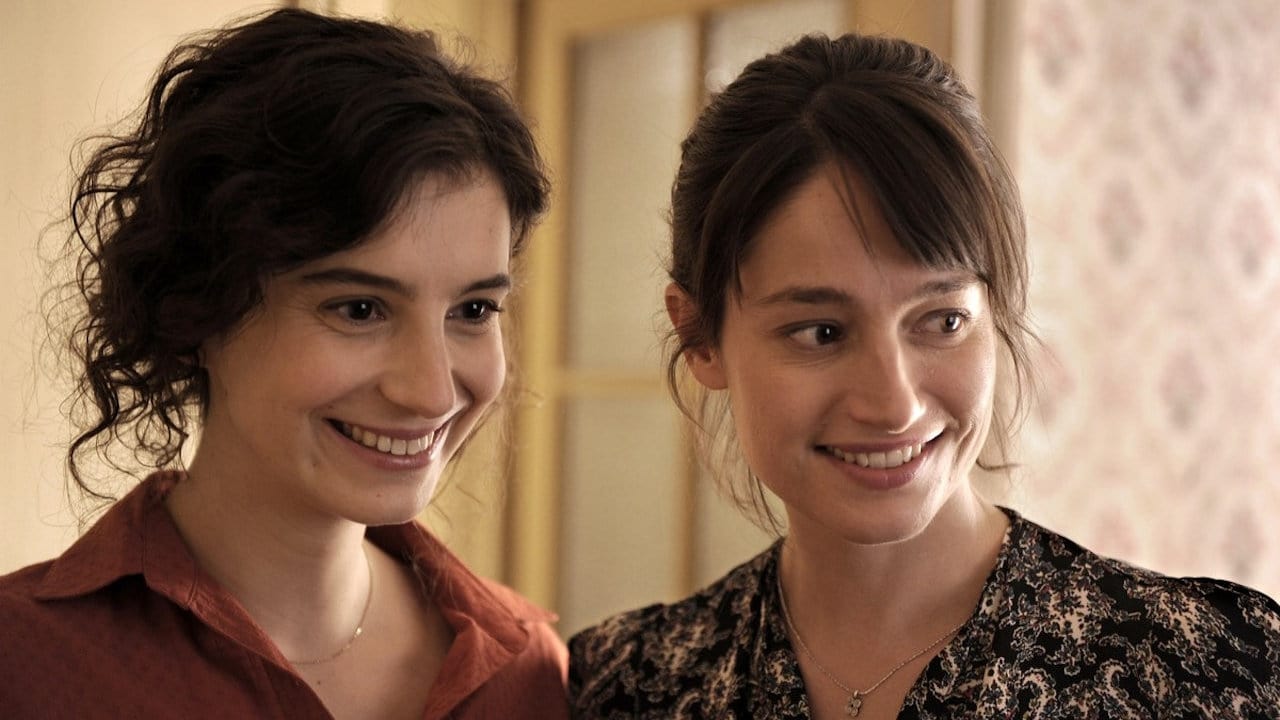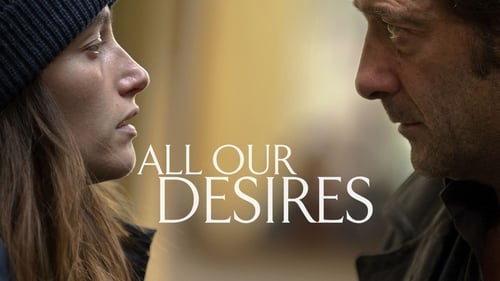Bob Taylor
Philippe Lioret has created some terrific roles for women: I will always remember what Sandrine Bonnaire did with her Brittany lighthouse keeper's wife who has a yen for a young stranger (L'Equipier), or what Melanie Laurent did with her head-strong teenage girl part (Je vais bien...). Marie Gillain makes us forget her early work as empty-headed women who easily turn to crime as she plays a crusading judge, a woman who tries to fight the predatory credit system in France. Not only are the banks against her, but the people who want easy credit and won't read the fine print on contracts are too.The actors do fine; I'm always glad to see Vincent Lindon in any part and here he is especially good. He's a rugby coach as well as Gillain's partner in the crusade and gives a great energy to the film. I would have cut about 30 minutes out of it, however.
brenda lee
All Our Desires, is an exceptional piece of story telling, without telling the story. Dialogue is minimal and ordinarily mundane, as we all generally know it to be in real life; but it's what isn't said that tells this story. It takes a team of truly gifted people to be able to pull off a movie like this, and there are a lot of scenes where the nuances in communication are subtle and not in the least oversold by the actors or the producer. Yes, this is a story that is likely to bring a tear to your eye, and yet it has a poignant depth which makes grief bearable. If you are looking for a gentle yet gripping movie that will speak to the intellectual in you, then this is a must see.
ronchow
There is really nothing special about the story - a successful, young lawyer with a good career, two great children and a 'model' husband finds her life in peril upon the revelation of an incurable disease. We have seen stories like this before. However, 'All Our Desires' (I still think the title is not very relevant) is a film that works. It works because of the way the director tells the story, and the way the actors play out their roles and emotion.Nothing is over-the-top. The bonding between the two lead actors, with the age gap, is natural and admirable. One can still argue about the cliché of Claire withholding her illness from her husband but it was not too important. In the end I find the story to be moving, well told and engaging.This is my first exposure to films by Philippe Lioret. And it definitely will not be my last.
guy-bellinger
Philippe Lioret is one of the rare sound technicians to have turned film director. And a pure technician he did not remain, becoming instead a full-fledged artist, slowly maturing from offbeat comedy maker ("Tombés du Ciel" [1993], "Tenue correcte exigée" [1997]) to successful painter of the passions ("Mademoiselle"[2001], "L'équipier"[2004]). A new step was taken in 2006 with "Je vais bien ne t'en fais pas", one of the most intense dramas ever filmed, which propelled him to the status of key figure of the French cinema. Lioret's following work, "Welcome", released three years later, a model of the committed film genre, confirmed the high hopes placed in the director, whose last two films managed to convince both audiences and film critics. In "Toutes nos envies", his latest work to-date, Lioret this time tries to synthesize the separate driving forces of his two masterpieces (intimate drama and social involvement) in a single story. On the personal tragedy side, he tells us the sad story of Claire, an idealistic judge in her thirties, married to a sweet husband and mother of two, who discovers to her dismay that she is struck by an incurable illness. As for sociological aspect of the movie, it lies the fight the young judge wages against revolving credit, and by extension, against the aberrations of ultra- liberalism.Choosing to deal with a societal phenomenon through the eyes of a young woman of course allows identification to her and, through this process, easier understanding of a complex issue. But, taking as a heroine a young woman who can see herself dying was certainly not an obvious choice, the danger being of indulging in cheap melodrama. Fortunately, Philippe Lioret knows better than that : "Mademoiselle", "L'équipier", "Je vais bien..." and "Welcome" could have been tearjerkers ; they were not. Nor is "Toutes nos envies". Simply because for the director suffering elevates the person who fights it with dignity. Whereas in a mere tearjerker it is just an excuse for drawing crocodile tears from undemanding viewers ; and this at the expense of the characters, debased to the level of whiners. For that matter, he was quite right to offer the role to Marie Gillain, a charming actress who, although not used to playing such tragic characters, manages here to display a lot of conviction while at the same time showing welcome (pun not intended !) restraint. At once fragile and strong, fresh and grave, rebellious and warm, Marie Gillain joins the vibrant Sandrine Bonnaire and Mélanie Laurent in the pantheon of Philippe Lioret's heroines.Claire, Philippe Lioret's engaging spokesperson, elegantly voices the writer-director's outrage at the way people in need of money are squeezed dry and driven to despair by lending organizations, thus making tremendous profit out of their poverty. This revolting situation is denounced from the outside by Claire but also experienced in her own flesh by Céline, a divorced mother and helpless victim of what can be called the new usurers (a very natural performance by Amandine Dewasmes).A very skillful way to study the questions from all angles, from the theoretical legal point of view to the everyday practical one. So much so that, unless you are a loan shark yourself, you cannot but side with the victims of the system while capturing all its intricacies.The direction is effective but without inadequate artistry, making good use of natural locations (Lyon, Valence, the Salagou Lake). The cast is superior, with Vincent Lindon as its male star. In "Toutes nos envies" he gives another of his superb performances as Stéphane, a judge who has seen it all and proves reluctant to take action but until, out of sympathetic friendship for Claire, he accepts to take over her mission. A fine example of social commentary with a heart, "Toutes nos envies" has met its two fixed targets : to move viewers on the one hand and raise their awareness on the other.


